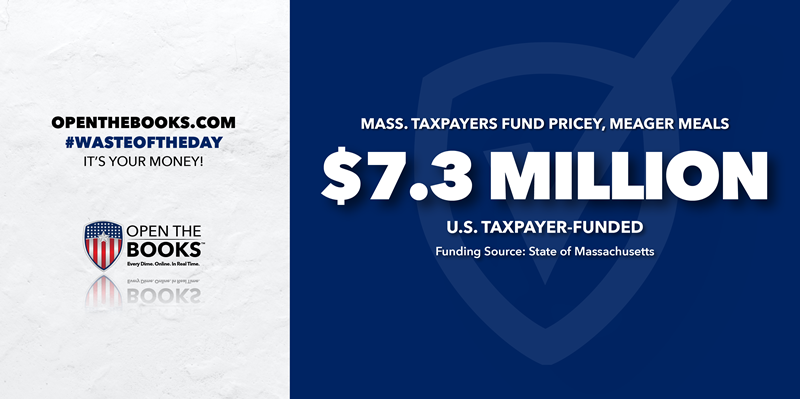
New York Approves Tax Breaks For Journalists
May 20, 2024

Topline: New York State recently approved $90 million in tax credits to support local journalism, adding to the $8 billion the state already spends annually on business-specific tax breaks and grants.
Key facts: The Local Journalism Sustainability Act is the first of its kind in the U.S. and will split money evenly between large media outlets and small ones with fewer than 100 employees.
The tax credits will cost up to $30 million annually for three years starting in 2025. Eligible news outlets can receive a 50 percent refundable credit for the first $50,000 of a journalist’s salary, up to a total of $300,000 per outlet.
They can earn an extra $5,000 for each new full-time position they create.
New York’s budget this year is $224 billion, higher than any state except California. Next year it will increase to $237 billion.
The tax credits will help preserve the struggling local journalism industry, but they also present obvious ethical questions. Can a news outlet remain objective when receiving handouts from the government?
In 2021, the New York Post’s editorial board said a similar proposed program at the federal level would “neuter” the free press.
Supporters of the law say journalistic integrity won’t be compromised because the state is giving tax credits, not direct grants.
Background: New York’s program is so far the largest journalism initiative being discussed around the country. Since 2017, 10 states have introduced 24 bills designed to protect local journalism.
In September 2022, California gave UC Berkeley $25 million for a fellowship program that supported reporting in underserved communities. It was the largest public investment in local journalism at the time.
California’s proposed Journalism Preservation Act would take things further by requiring digital publishers like Google and Facebook to pay a tax for carrying news content, which would then be redistributed back to news outlets.
New Jersey and New Mexico have also used public funds to support local journalists in recent years, though on a much smaller scale.
Summary: Local journalism is indeed vital for our Democracy, but programs that threaten the independence of newsrooms might not be the right way to save the industry.
Oklahoma Awarded Millions in No-Bid Contracts
May 21, 2024

Topline: The Oklahoma attorney general is calling on Secretary of Tourism Shelley Zumwalt to resign after state auditors questioned roughly $27 million of federal funds spent under her watch.
Key facts: Auditors reviewed $13 billion of federal money spent by Oklahoma in fiscal year 2022, mostly from COVID relief funds.
Auditors said that Oklahoma is “rapidly becoming a no-bid state,” which would be a “great disservice to taxpayers.”
The state’s agencies are required to use a competitive bidding process when buying goods and services from private companies. This allows the state to obtain the best price and protect taxpayer money.
But auditors say the state Office of Management and Enterprise Services (OMES), which Zumwalt used to lead, ignored this requirement. Instead, high-ranking employees were allowed to sign contracts with any company of their choosing without a bidding process.
The audit claims that OMES was unable to explain how their revised system benefits taxpayers.
Auditors also found multiple conflicts of interest within OMES’ contracts.
OMES gave $1.1 million of no-bid contracts to a consulting firm run by a former employee, even though the firm did not “have the necessary experience for administering” the $1.2 billion grant it oversaw.
The contract was paid before services were rendered, violating state law. Auditors couldn’t even figure out what some of the payments were for.
Another contract worth $7 million went to a software company where Zumwalt’s husband is the vice president.
OMES also spent $6.5 million to move Afghani refugees to Oklahoma hotels, which was not what the federal grant was meant for.
Background: OMES spent over $70 million on payroll for 1,642 employees last year with some making up to $225,000, according to records at OpenTheBooks.com.
Zumwalt recently got a raise last September to bring her salary to $265,000.
Critical quote: “This level of self-dealing represents an unforgivable breach of trust that disqualifies Ms. Zumwalt from overseeing the expenditure of our tax dollars,” Attorney General Gentner Drummon said in a statement.
Supporting quote: “The auditor’s report is misleading. A thorough review of this situation would have easily cleared up any confusion,” Zumwalt said in a statement. “Transparency has always been a top priority of mine, and I will not be resigning.”
Summary: Awarding government contracts to the first taker is certainly the most convenient way of doing business, but public money deserves more rigorous stewardship.
Indiana University’s $3 Million Sex Research Payroll
May 22, 2024

Topline: Indiana University paid $3.3 million to employees researching “human sexuality” at its controversial Kinsey Institute in 2023, according to payroll recordsobtained by OpenTheBooks.com.
State lawmakers recently banned the university from spending tax dollars on the Institute’s operational costs, but that won’t entirely stop public money from flowing in. Indiana University voted in March to keep its affiliation with the Kinsey Institute and allow faculty to continue working there on a taxpayer salary “to the full extent allowable by law.”
Key facts: The Kinsey Institute’s mission is to conduct research in “the science of love, sexuality, gender, and sexual health.”
Some conservatives dislike the Institute’s research because they say it contributed to social acceptance of pornography and homosexuality.
One 2019 study from the Institute claimed that pornography could ease symptoms of loneliness and depression. Researchers also created the “Kinsey Scale,” which claims that most people are not entirely heterosexual or homosexual.
Several Institute researchers double as professors in Indiana University’s Gender Studies department, including Executive Director Justin Garcia. He led the payroll with $266,400 in earnings.
Thirteen of the 49 staffers made more than $100,000, though the payroll includes 10 part-time student workers making small stipends.
Ten people work at the Institute’s library — which houses “books and articles related to all facets of sex” as well as 80,000 photographic prints — and earn up to $128,000.
Background: Lawmakers issued the funding ban primarily because of the Kinsey Institute’s alleged history of child sex experiments, but the Associated Pressreports that those claims are “unfounded.”
Regardless, taxpayers should not be funding a research center that legislators have deemed to have little public merit.
Indiana University considered turning the Institute into a private nonprofit to comply with the ban. Instead, they’ll consult with lawmakers to fund the Institute using donations and other revenue instead of state appropriations.
That means the new law may be largely symbolic. The Institute won’t technically be using tax dollars, but it will divert private money from the university and force more state funds to be spent on other programs.
OpenTheBooks’ auditors found $1.9 billion in payroll costs from Indiana University last year. There were 716 employees making more than $200,000.
That includes over $12 million paid for a fired football coach’s contract buyout and $853,000 paid to President Pamela Whitten.
Summary: Money is fungible, and even without taxpayer funds directly funding the institute, public money is subsidizing the research.
Throwback Thursday: Federal Government Builds Underwater Trail
May 23, 2024

Throwback Thursday!
Topline: The federal government spends money to maintain over 1,300 national hiking trails that are easily accessible to all Americans — but it also spent hundreds of thousands of dollars on a trail that is underwater.
In 2008, two Democratic senators from Maryland earmarked $446,500 to place buoys along the Captain John Smith Chesapeake National Historic Trail so that visitors could sail along the path once traveled by the famous explorer.
There was just one limiting factor: travelers needed to provide their own boat.
That’s according to the “Wastebook” reporting published by the late U.S. Senator Dr. Tom Coburn. For years, these reports shined a white-hot spotlight on federal frauds and taxpayer abuses.
Coburn, the legendary U.S. Senator from Oklahoma, earned the nickname "Dr. No" by stopping thousands of pork-barrel projects using the Senate rules. Projects that he couldn't stop, Coburn included in his oversight reports.
Coburn's Wastebook 2008 included 65 examples of outrageous spending worth more than $1.3 billion, including the earmark for the underwater hiking trail — which would be worth $660,000 today.
Key facts: The John Smith trail covers 3,000 miles in six states stretching from Virginia to New York and was first established by President George W. Bush in 2006.
Sens. Ben Cardin and Barbara Mikulski sent over more funds in 2008 from the National Oceanic and Atmospheric Administration’s budget to install “talking buoys” that gave travelers info on the weather and the history of the region.
Miraculously, that was only enough money to buy markers so visitors could see the trail from land.
If parkgoers wanted to actually use the trail, they would need to provide their own boat. That’s perhaps a less equitable arrangement than Smith envisioned when establishing the first English colony in America.
Boat-less visitors had to wait until 2015, when the federal government spent another $2 million to build canoe launches around the trail.
Summary: The Department of Transportation bans earmarks from being used on projects that most of the public can’t access. Who would have thought a similar rule might be necessary for our national parks?
Massachusetts Pays Up To $31 Per Meal To Feed Migrants
May 24, 2024

Topline: Most hard-working Americans can’t afford to spend $21 to $31 on dinner every day. If they did, they’d likely expect to get steak or lobster for their money.
Yet that’s exactly how much the state of Massachusetts is spending to feed homeless migrants, according to CBS Boston. The state isn’t even getting its money's worth: the meals include spaghetti and hot dogs or rice with a single chicken drumstick.
Key facts: The $21 meals come from the Fairfield Inn Boston Dedham, where the state is paying $180 to house homeless families and migrants — even though advertisements show hotel rooms start at $129.
Lunch costs $16, but a family interviewed by CBS Boston said it contains “nothing edible,” such as soup with “just bones” in it.
Taxpayers will spend a total of $7.3 million to feed families at the Fairfield Inn.
It’s part of 17 state contracts worth $116 million that Massachusetts signed to provide free housing to migrants in hotels and motels through June, according to records obtained by CBS Boston. Nine of those, including the Fairfield Inn, are for hotels owned by Giri Hotel Management, which will make $46 million from taxpayers.
When the state hired its own catering companies for migrants instead of relying on hotels, it still overspent. Massachusetts signed a $10 million contract with Spinelli Ravioli Manufacturing Company through a no-bid process that did not ask other vendors to provide cheaper food.
The state told CBS Boston that the ravioli contract, which ended in March, was justified by the “unprecedented increased demand” for food.
Background: In addition to the hotel expenses, Massachusetts spends about $75 million every month on 7,500 migrant families living in state-run emergency shelters.
Gov. Maura Healey signed a supplemental budget in March that spends $840 million over the next two years for the migrant crisis.
That still wasn’t enough. The federal government agreed in April to help Massachusetts by using Medicaid funds, which Axios Boston says could cost $647.5 million over the next four years.
Critical quote: State Sen. Peter Durant told CBS Boston of the hotel contracts, "This is something that we have been asking the administration for information on, for the better part of a year and have been stonewalled on the information.”
Summary: Something is amiss when taxpayers are spending more to feed those in emergency housing than to feed their own children.
The #WasteOfTheDay is presented by the forensic auditors at OpenTheBooks.com.